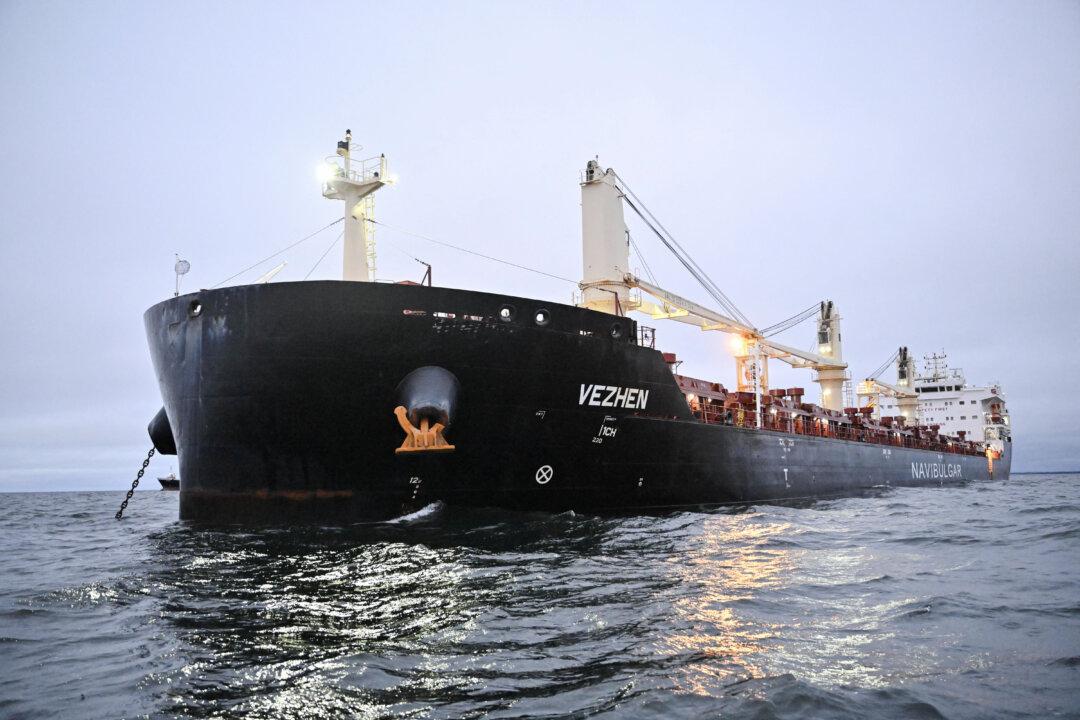A Swedish prosecutor said on Feb. 3 that a cargo ship seized last month did rupture an undersea cable in the Baltic Sea but that it was an accident rather than sabotage.
The severing of the subsea cable linking Sweden and Latvia on Jan. 26 followed several similar incidents in recent months and triggered a hunt for vessels suspected of being responsible.





